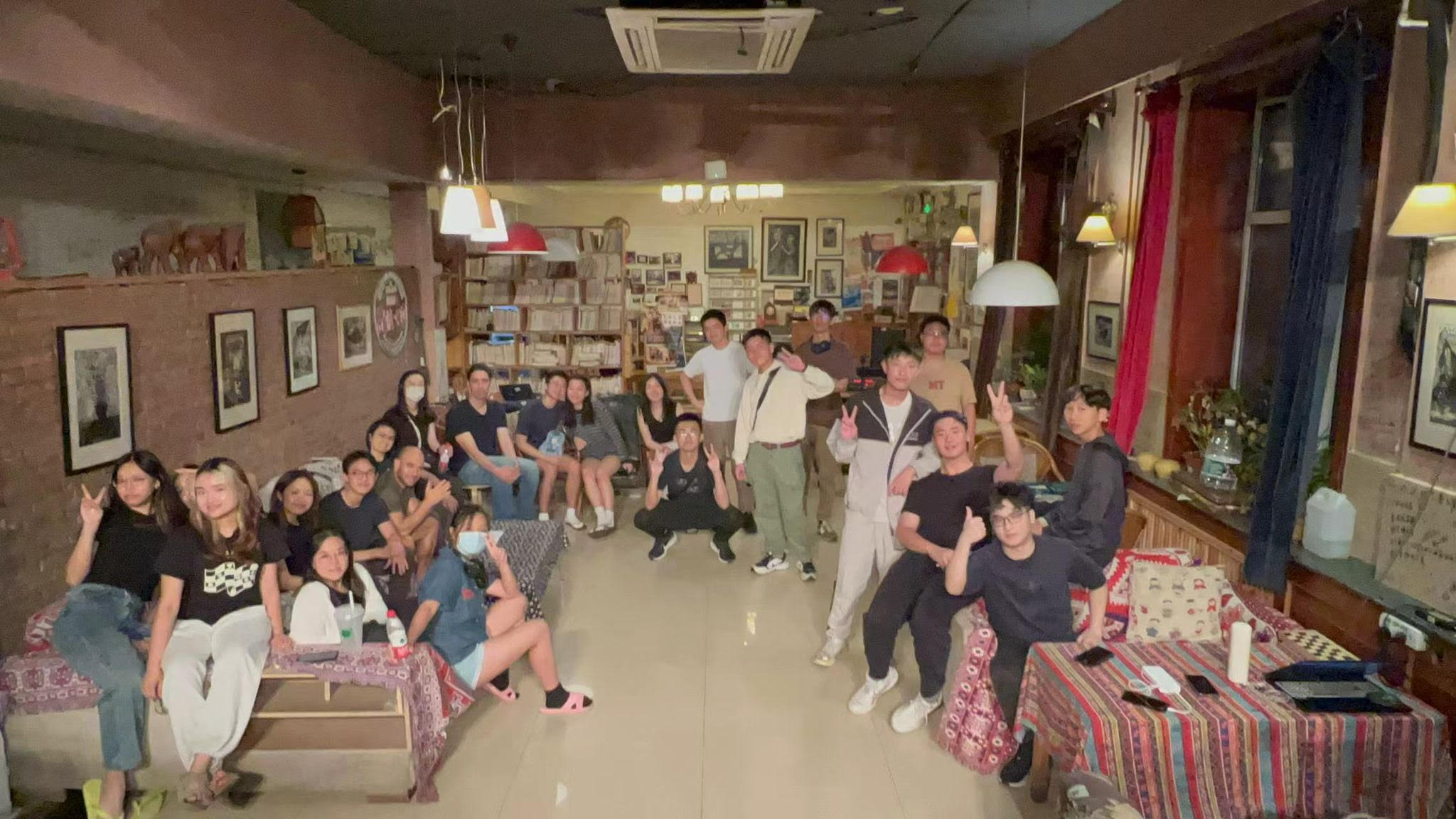 |
CCCH6001 China: Culture, State and SocietyHuman Monkeys: Unethical Research in ManchuriaThis course is under the thematic cluster(s) of:
|
[This is a 3-credit Common Core Microcredential course focused on transdisciplinary project-based learning in a highly compressed format.]
- CCMCs are optional, i.e. whether or not you take CCMCs (in place of one standard 6-credit CC course) for fulfilling the UG5(c) Common Core requirements, is at your discretion. However, if you opt to take CCMCs, you must take TWO of them, not more or less.
- Students who have been granted Advanced Standing / Credit Transfer / Course Exemption / Internal Transfer for Common Core courses in their current programme are NOT eligible.
- For students who have successfully completed two 3-credit CCMCs in place of one 6-credit Common Core course, the average grade point of the two CCMCs will be treated as the grade point of a 6-credit Common Core course for calculation of Graduation GPA under the Common Core Special Proviso.
Course Description
[This is a certified Communication-intensive (CI) Course which meets all of the requirements endorsed by HKU’s Senate, including (i) the teaching assessment of oral and written communication ‘literacies’; and (ii) at least 40% of the course grade is assigned to communication-rich assessment tasks.]
At a time where challenge trials are becoming commonplace, and controversy surrounds heritable gene editing research, research ethics is particularly timely. This intense, experiential learning course will introduce medical and non-medical students to research ethics in general and specifically to research conducted by the Japanese Unit 731 in Manchuria during WWII. Called ‘logs,’ and designated as monkeys in scientific publications, Chinese citizens as well as prisoners of war from various countries were experimented on using biological and chemical materials, all in the name of science. Japanese researchers later found asylum in the USA, with their research findings potentially being used during the Korea war and elsewhere. Walking in the footsteps of the research subjects in Manchuria, visiting what was once the headquarters of Unit 731, and learning more about the hideous studies that were conducted, students will be encouraged to reflect on the past and future of research ethics. We will specifically explore common topics and dilemmas in research ethics such as informed consent, whether it is justified to use data that were gained through unethical research, and can we judge past research based on current regulations and guidelines.
(Professor Timothy Rainer, the Head of the Department of Emergency Medicine at HKU, will give a special guest lecture on history informed professional identity formation.)
[This course has a 8-day compulsory field trip to Manchuria which will be held from July 31 to August 7, 2025. Students will be expected to contribute towards necessary travel costs for this course.]
[Students will be eligible to apply individually for “Non-means-tested Mainland Experience Scheme for Post-secondary Students” after the field trip.]

Course Learning Outcomes
On completing the course, students will be able to:
- Cite and explain key concepts and arguments in research ethics such as informed consent, autonomy and challenge trials.
- Cite and explain significant signposts in the historical development of research ethics in the world, including questionable studies and documents such as the Belmont Report.
- Critically review current and future research across various disciplines.
- Apply the insights gained during the course in developing ethically sound research projects in the future.
- Explain the Unit 731 episode in its wider social and historical context both within and outside of China.
- Critically discuss the ethics of remembrance.
Offer Semester and Day of Teaching
Summer Semester
July 31 – August 7, 2025
Study Load
| Activities | Number of hours |
| Lectures | 17 |
| Fieldwork / Visits | 30 |
| Reading / Self-study | 15 |
| Assessment: Essay / Report writing | 6 |
| Assessment: Group project | 10 |
| Total: | 78 |
Assessment: 100% coursework
| Assessment Tasks | Weighting |
| Written reflections | 50 |
| In-class discussion and debate | 20 |
| Final project | 30 |
Required Reading
- Baer, A., & Sznaider, N. (2017). Memory and Forgetting in the Post-Holocaust Era: The Ethics of Never Again. Routledge.
- Beecher, H. K. (1966). Ethics and clinical research. The New England journal of medicine, 274(24), 1354–1360. From https://doi.org/10.1056/NEJM196606162742405
- Bülow, W., Godskesen, T. E., Helgesson, G., & Eriksson, S. (2020). Why unethical papers should be retracted. Journal of medical ethics, medethics-2020-106140. From https://doi.org/10.1136/medethics-2020-106140
- Czech, H, et. al. (2023, November 18). The Lancet Commission on medicine, Nazism, and the Holocaust: historical evidence, implications for today, teaching for tomorrow. The Lancet, 402(10415), 1867–1940. From https://doi.org/10.1016/S0140-6736(23)01845-7.
- Emanuel, E. J., Wendler, D., & Grady, C. (2000). What makes clinical research ethical?. JAMA, 283(20), 2701–2711. From https://doi.org/10.1001/jama.283.20.2701
- Emanuel, E. J., Wendler, D., Killen, J., & Grady, C. (2004). What Makes Clinical Research in Developing Countries Ethical? The Benchmarks of Ethical Research, The Journal of infectious Diseases, 189(5), 930-937. From https://doi.org/10.1086/381709
- Harris, S. H. (1994/2002). Factories of Death: Japanese Biological Warfare, 1932-45 and the American Cover-Up.
- Shepherd, L., & Macklin, R. (2019). Erosion of informed consent in U.S. research. Bioethics, 33(1), 4-12. From https://doi.org/10.1111/bioe.12532
- Su, Z., McDonnell, D., Cheshmehzangi, A., Abbas, J., Li, X., & Cai, Y. (2021). The promise and perils of Unit 731 data to advance COVID-19 research. BMJ global health, 6(5), e004772. From https://doi.org/10.1136/bmjgh-2020-004772
Articles and Reflections about Unit 731 and the Trip
Course Co-ordinator and Teacher(s)
| Course Co-ordinator | Contact |
| Dr Z. Lederman Department of Emergency Medicine, Li Ka Shing Faculty of Medicine |
Tel: Email: lederman@hku.hk |
| Teacher(s) | Contact |
| Dr Z. Lederman Department of Emergency Medicine, Li Ka Shing Faculty of Medicine |
Tel: Email: lederman@hku.hk |

